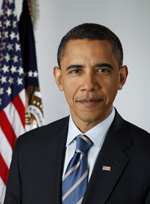The latest round of Trans-Pacific Partnership talks ended last week in Hawaii, failing to reach an expected breakthrough despite earlier reports that a sticking point on the length of data exclusivity for biologic drugs had been narrowed considerably.
But Reuters reported that the issue over the period for data exclusivity of biologics remained a point of dispute between the dozen Pacific Rim nations negotiating the pact, along with auto trade issues between Japan and North America as well as New Zealand's stance on U.S. dairy subsidies.
Still, the final word from a week of meetings in Hawaii was upbeat on prospects for clearing remaining hurdles.
"In this last stage of negotiations, we are more confident than ever that TPP is within reach and will support jobs and economic growth," according to a joint statement by TPP ministers issued at the conclusion of the latest round.
"The progress made this week reflects our longstanding commitment to deliver an ambitious, comprehensive and high-standard TPP agreement that will support jobs and economic growth across the Asia Pacific region."
Separately, Nikkei Asian Review said the member countries might hold another round of ministerial talks in late August in Malaysia in what is seen as a time-sensitive point in the U.S. political cycle.
 |
| U.S. President Barack Obama |
At stake now is whether the administration of U.S. President Barack Obama can keep the general support of the Republican-backed U.S. Congress for a pact, while keeping his own Democratic party from hard opposition as the 2016 election cycle nears.
Republicans, who helped Obama win fast-track negotiating authority which allows for a straight up-or-down legislative vote on any deal, generally support industry calls to keep the 12-year data exclusivity period outlined in the Affordable Care Act, as do many Democrats.
But the exclusivity period for data related to the development of new drugs is part of broader intellectual property discussions under the 12-nation talks that have stoked opposition from civil society groups that say innovative medicines will be costlier in countries that have lower, or no, exclusivity periods now.
A draft of the intellectual-property texts for the TPP leaked earlier this year suggested that the data exclusivity period for biologic medicines has been whittled down to 7 years. Under the U.S. Affordable Care Act, biologics enjoy a 12-year data exclusivity period and trade negotiators from the U.S. are under the requirement to broadly follow U.S. laws.
However, last week Nikkei said Australia and others have softened their positions on data exclusivity, citing sources close to the talks as saying 8 years is now the position.
Nikkei also said that Japan and other countries oppose any period exceeding 10 years and aim to settle on 8 years at the ministerial sessions.
- here's the story from Reuters and one from Nikkei
- and the joint statement by TPP Ministers